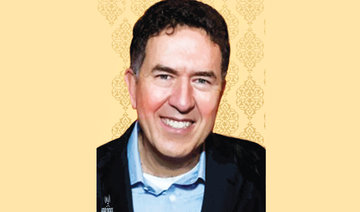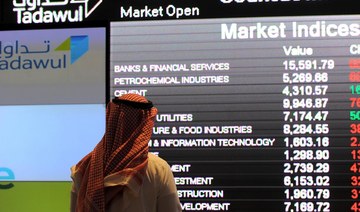LOS ANGELES: A few years behind Wall Street, Hollywood is turning to the technology behind cryptocurrency bitcoin to distribute movies in a development hailed as the beginning of the end for piracy.
Leading the charge is “No Postage Necessary,” a romantic indie comedy about a luckless hacker that is being distributed via peer-to-peer video network app Vevue, running on Qtum, the most advanced blockchain in the world.
Jeremy Culver (“An Evergreen Christmas”) wrote, directed and produced the release from US production house Two Roads Picture, shot on 35mm film.
The movie gets its US theatrical release and worldwide blockchain debut in June and will also be available to buy online using cryptocurrency.
“We are thrilled to provide movie lovers around the world with a new way to experience their entertainment by turning the blockchain into a feature film distribution channel,” Culver said in a statement.
“Although this is a first for the industry, we hope it will signal a shift in the way content is shared and consumed.”
A blockchain is essentially a shared, encrypted “ledger” that cannot be manipulated, offering the promise of secure transactions that allow anyone to get an accurate accounting of money, property or other assets.
The technology publicly records the unique alphanumeric strings that identify buyers and sellers, allowing more transparent and secure peer-to-peer payment systems.
Blockchain made its debut in 2009 as a ledger for the leading cryptocurrency bitcoin and is already used in food safety, finance and sea freight.
Its advantages, according to Culver, include immutable proof of intellectual property rights, transparent royalty payments, and, since all blockchain data is resistant to duplication, a future in which movies are “no longer pirated.”
“No Postage Necessary” tells the story of cynical, single computer hacker Sam — played by “Vikings” and “Black Mirror” actor George Blagden — who makes ends meet by stealing mail while disguised as a postal worker.
He happens upon a letter written by a heartsick Josie (Charleene Closshey) to her late husband and fallen marine, and the tender missive awakens something in Sam.
He conspires to meet the beautiful, young war widow and she warms to the idea of a new chance at love — but not before Sam’s past comes knocking in the form of an FBI agent looking for missing bitcoins.
Closshey, who composed the score and was part of the female-led production team, said she and her colleagues recognized the opportunities around the title the moment they read the “timely and relevant” script.
“Although the film makes light of a misguided cyber-genius who can hack a multibillion-dollar corporation within minutes, these types of technological advancements are becoming a normal part of everyday life for society as a whole,” she said.
Culver is hoping blockchain can help “No Postage Necessary” go viral, as moviegoers who upload a review as soon as they leave the theater will be able to unlock Vevue tokens as rewards.
“Up until now, the technology just hasn’t been ready — there wasn’t a platform to support the vision,” he said, noting the serendipity of a movie about bitcoin being the first to release on the blockchain.
“But innovation creates its own timing.”
Following the movie into blockchain technology will be sci-fi anthology “New Frontiers,” effectively five sci-fi movies filmed around the world and stitched together into one feature film.
Funded and distributed on the blockchain via a partnership between XYZ Films, Ground Control, and SingularDTV, production is already underway with a release expected before the end of the year.
“Decentralized,” a movie from the LiveTree ADEPT blockchain platform, is set for release in autumn, starring Amari Cheatom (“Django Unchained“) as a skeptical economics professor learning about the technology.
The feature from video shorts specialist Christopher Arcella will serve as a pilot to a television series covering many topics in the complex technology and computing sector.
“The story is written to provide an educational narrative in a fictional setting to help people completely unfamiliar with the technology gain some initial footing,” a spokesman for ADEPT said in a statement.
A number of issues need to be resolved before blockchain technology becomes mainstream, with the anonymity of transactions concerning regulators seeking to crack down on money laundering and financing of terrorism.
Pop culture writer Amy Roberts said Culver’s statements reveal a widespread fallacy that the mere presence of a blockchain can guarantee the information in it is resistant to alteration.
“Bitcoins, for example, cannot be copied as they are just entries on a ledger — not digital files per se — whose authenticity is incentivized and managed by thousands of individual peer operators worldwide,” Roberts wrote in a commentary for the Film Daily online magazine.
“But media or other data, even if referenced on a blockchain, can always be duplicated. A blockchain is simply a database.”
Hollywood’s first blockchain movie promises an end to piracy
Hollywood’s first blockchain movie promises an end to piracy

Saudi Rasan to offer 30% shares for IPO on Tadawul

RIYADH: Saudi-based fintech Rasan Information Technology Co. is set to offer 22.74 million shares for an initial public offering on the Kingdom’s main market.
The company, along with its subsidiaries, will list the shares, which represent 30 percent of its issued share capital, on Tadawul through the sale of 17.4 million existing ordinary shares as well as 5.3 million new ordinary shares, according to a statement.
While the existing ordinary shares account for 23 percent of the company’s issued share capital, the new ordinary shares represent 7 percent.
This comes following the Capital Market Authority’s approval in March of the fintech firm’s application for registering its share capital and offering the total number of ordinary shares, with a nominal value of SR1 ($0.27) per share.
Moreover, the offering proceeds after deducting IPO-related expenses will be distributed to the selling shareholders equally based on their shareholding in the existing ordinary shares.
The remaining proceeds are set to be distributed to the company in order to expand its current operations and products, market and develop new products, as well as finance the general purposes of the firm and its subsidiaries.
The final price of the offer shares, which account for the existing and new ordinary shares combined, will be determined by the existing shareholding and the company, in consultation with the financial advisers, following the book-building process and prior to commencement of the subscription period for individual subscribers.
The financial advisers include Saudi Fransi Capital and Morgan Stanley Saudi Arabia.
Saudi Aramco raises June’s Arab light crude price to Asia

RIYADH: Saudi Aramco raised June’s official selling price for the flagship Arab light crude it sells to Asia, according to an official statement.
Differentials for the flagship Arab Light grade were priced at Platts Dubai/DME Oman +$2.90 per barrel, up from +$2 a barrel in April.
This was the highest OSP in five months and largely in line with expectations, based on a firmer market structure and higher spot premiums last month for tradable Middle East grades such as Oman, Al Shaheen and Upper Zakum.
The higher OSPs also came after the Organization of the Petroleum Exporting Countries and its allies, known as OPEC+, maintained the first quarter round of voluntary cuts into the second quarter, while the global crunch on supplies of sour crude also underpinned Middle East grades.
Arab Medium was increased by $1 per barrel to +$2.35 per barrel, while Arab Heavy was hiked $1.10 a barrel to +$1.60 per barrel.
For Northwest Europe, the Arab Light OSP was set +$2.10 per barrel over ICE Brent futures, up from +$0.30/b while Medium was hiked from minus $0.40/b to +$1.10/b. Both grades were hiked to reflect the relative weakness in Brent compared to sour barrels.
Arab Light for April to the US Gulf was kept unchanged at +$4.75 per barrel over ASCI, while Medium was at +$5.45/b and Heavy at +$5.10/b, respectively, both slightly lower on the month.
Hong Kong, Chinese investors set eyes on Saudi market
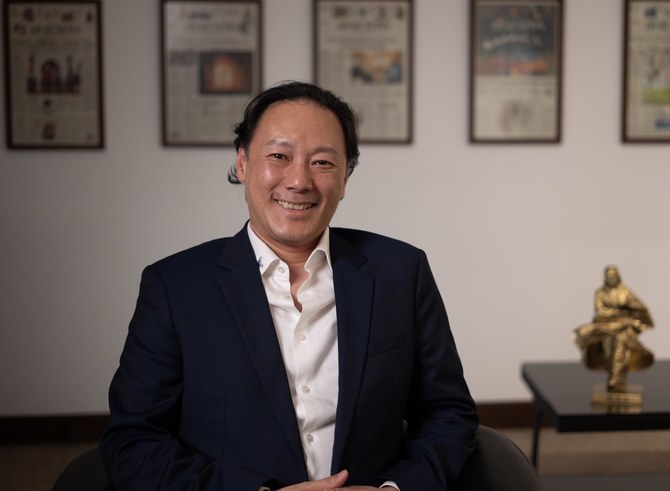
- A delegation of business leaders is set to explore diverse sectors in the Kingdom
RIYADH: Hong Kong and Chinese companies are gearing up for substantial investments in the Saudi market, marking a significant step toward strengthening economic ties, a top official said.
A delegation of 30 business leaders from Hong Kong and mainland China is set to explore diverse sectors in the Kingdom, propelled by the ambitious Vision 2030 outlined by Saudi leadership, King Leung, global head of financial services and fintech at Invest Hong Kong, said in an interview with Arab News.
Explaining the reason for his visit to Riyadh, Leung said: “I’m bringing a delegation of 30-plus executives across different disciplines to explore ways to do business in Saudi Arabia. This is not just about attracting inbound (investment), but also helping mainland Chinese companies use Hong Kong as a base to springboard to key markets like Saudi Arabia.”
Outlining the potential for co-investment between the two nations, he said: “Definitely, it’s going to be a huge number,” a sentiment that echoes the palpable excitement among Hong Kong investors who are eager to tap into the vast opportunities offered by the Saudi market.
The convergence of interests between Hong Kong and Saudi Arabia is underpinned by a notable synergy observed between businesses in both regions, the executive said, with an eye on forging strategic partnerships.
Hong Kong delegates, including private sector leaders and venture capitalists, are eager to explore avenues for collaboration that align with the objectives of Vision 2030.
“All these things that we are now finding out allow business leaders to see that some businesses from Hong Kong actually have very, very good synergy with Vision 2030 in your country.”
“It’s hard to quantify the exact number, but definitely, it’s going to be (a) huge number. I have to say these investments cut across different sectors, where you can imagine the market size is enormous,” he said, emphasizing the allure of megaprojects such as NEOM and the King Salman Park, which are set to transform the Saudi investment landscape.
These projects not only serve as magnets for investment but also catalyze growth in ancillary sectors such as financial services and consumer products, the head of financial services emphasized.
“These are megaprojects. So, all these things are going to really attract a lot of business activities, of course, initially in construction. But once you have all this construction coming in, then you need the other peripheral sectors to service them, like financial services, consumer products, and payments. So, all these things present a lot of opportunities that really get our delegates and investors from Hong Kong and China very excited,” he further explained.
Another testament to the nation’s favorable investment ecosystem is its “impressive GDP growth and low debt ratio,” factors that instill confidence among investors.
Among the sectors garnering attention are green energy and advanced manufacturing, the delegate said, affirming that Saudi Arabia is “paving the way for the future” of clean energy.
Hong Kong-based companies, armed with cutting-edge technologies, are eyeing opportunities to contribute to Saudi Arabia’s sustainable development goals.
“I understand that your country is also paving the way for the future, including adopting green energy now. So, one green energy company that I have been talking to in mainland China, they have been in the green hydrogen space for some time, and they are evaluating to put a green hydrogen factory in Saudi Arabia.”
Thus, projects such as the green hydrogen factory, poised to harness solar power for hydrogen production, exemplify this collaborative spirit.
“Now, of course, the reason why they’ve done that, part of it, is because the way they generate hydrogen is to use solar power. So they need to go to a place where this is something in abundance. Now, at the same time, you also have some highly visionary, highly capable investment vehicles from the PIF and other funds,” he noted.
Furthermore, the burgeoning fintech ecosystem in Saudi Arabia presents fertile ground for collaboration between Hong Kong and the Kingdom.
Fintech companies from Hong Kong are eager to leverage their expertise to enhance banking services and drive digital transformation initiatives in the Kingdom, the executive noted, adding, “In our delegation, we have roughly, I’ll say between 10 to a dozen or so fintech companies that are very keen to see if they can bring the business and set up in Saudi Arabia so that they’re able to service the banks here.”
On the opposite end, recognizing the potential for synergy, banks from Saudi Arabia are contemplating establishing a presence in Hong Kong to bolster their trade and financial services, he said.
This strategic move aims to capitalize on Hong Kong’s strategic position as a gateway to the Chinese market, thereby facilitating closer economic ties between Saudi Arabia and China.
“Of course, we would love to see some Saudi companies set up in Hong Kong. In fact, two of the significant meetings we had were with banks, and now these banks are interested in setting up a presence in Hong Kong,” the official said.
“This is because of the close trading relationships, and they would like to have a presence in Hong Kong to serve, for example, Chinese customers. This way, they can facilitate services like trade finance and various other services handled by the headquarters in Riyadh,” he added.
This comes after a pivotal moment in strengthening the economic ties between Hong Kong and Saudi Arabia, marked by the signing of a memorandum of understanding between Invest Hong Kong and the Ministry of Investment of Saudi Arabia last year.
As a result of this agreement, delegates from Hong Kong have been afforded unique insights into Saudi Arabia’s macroeconomic landscape, grand vision, and burgeoning investment opportunities, further fueling their enthusiasm for collaboration and investment in the Kingdom.
“Last year, our leader at Invest Hong Kong signed an MoU with MISA. That MoU brought us even closer together. They have been very kind to bring in leaders from different aspects to educate us about your country, from macroeconomic data to the grand vision from leaders in both the public and private sectors,” he said.
Leung said they also shared insights into projects that have already gained significant traction. “All in all, our delegation was super impressed by the progress made by the country,” he concluded.
Japan keen to forge partnerships with Saudi Arabia in the field of IT, says minister
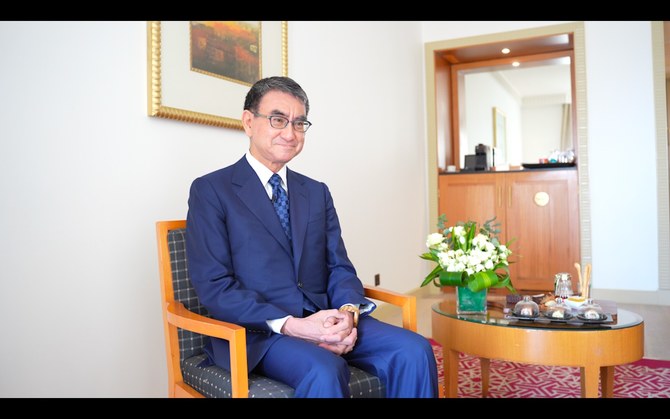
JEDDAH: Lauding Saudi Arabia’s efforts in developing giga-projects and the ongoing digital transformation in the country, a top Japanese official expressed his country’s willingness to strengthen collaboration with the Kingdom in the field of information technology.
Speaking to Arab News, Japanese Minister for Digital Transformation Taro Kono described his recent visit to one of the crown jewels of Vision 2030, NEOM, as truly remarkable.
The minister said that “he had the opportunity to fly over the project and witnessing it firsthand was truly remarkable.”
Since the launch of Vision 2030, Saudi Arabia has been in overdrive to diversify its economy away from oil and emerge as a hub of tourism, entertainment, technology, and renewable energy. On its road to transformation, the Kingdom is forging strategic partnerships with its global allies to achieve its target and work on mutually beneficial arrangements.
“I heard a lot about NEOM and The Line, I saw that the progress made was very impressive. And we heard the vision from the CEO. And it’s very convincing. So I was very glad that I came to NEOM this time. It was a very short (trip), but I think it was worth it,” the minister told Arab News.
NEOM, often referred to as the “city of the future,” is a $500-billion megacity project situated in the northwest region of Saudi Arabia. Encompassing 26,500 sq. km, the project aims to become a global leader in technology, innovation, and tourism through futuristic urban design and sustainable energy solutions.
Talking about Saudi Arabia’s demography, the minister said it is “a very young country” where the majority of the people are under the ages of 30-35. “And I see the Kingdom becoming more vibrant. And projects like NEOM” show that the country is swiftly moving forward.
Acknowledging the Kingdom’s success in adapting to the latest technologies, particularly related to cybersecurity, Kono praised the country’s leadership and its vision. He expressed his eagerness to forge a partnership with his Saudi counterpart to “learn from the Kingdom’s success.”
“I think the Kingdom is building up its resilience against any malicious attacks in cyberspace. So, I believe it is very ready to take a bold step forward. And I had a meeting with Saudi Minister of Communications and Information Technology Abdullah Al-Swaha and I think there’s a lot to learn from the Kingdom,” the Japanese minister said, adding that he had instructed his team to get in touch with their Saudi counterparts to learn from their approach.
Kono, however, stressed the need to develop non-English datasets to train artificial intelligence and proposed collaboration between Japan and Saudi Arabia in this regard.
While Japan has historically led in hardware technology, the minister admitted a lag in digital technology investment. Recognizing this gap, he signed a memorandum of cooperation with Al-Swaha to learn from Saudi Arabia’s IT advancements.
He said that although Japan excelled in analog technology during the 20th century, admittedly, they have fallen behind in investing in digital technology.
Their discussions reportedly included topics such as E-ID utilization, where Kono hopes to collaborate on developing mutual use cases to propel Japanese progress. He added: “I think the Kingdom and Japan could work together to advance in the field of IT software AI, so very much looking forward to that.”
With shared visions such as Vision 2030 and upcoming events like Expo 2025 in Osaka and Expo 2030 in Riyadh, the two countries have maintained a strong relationship for nearly seven decades.
Kono believes there is immense potential for collaboration between the two countries, particularly in joint projects for Expo 2025 in Osaka and Expo 2030 in Riyadh. “I am looking forward to continue working closely with the Kingdom,” he added.
Expo 2025 is scheduled to be held in Osaka, Japan. It will be held for 184 days This will be the third time for the Japanese city to host the event. Earlier Osaka hosted the global event in 1970 and then in 1990.
The theme for Expo 2025 is “Designing Future Society for Our Lives,” focusing on creating a better future through innovation and sustainability. The expo will provide a platform for countries to share their ideas and solutions to global challenges.
Expo 2030 is scheduled to be held in Riyadh. As the first World Expo to be hosted in the Middle East, it presents an opportunity for the region to showcase its cultural heritage, technological advancements, and vision for the future. The theme for Expo 2030 in Riyadh is “The Era of Change: Together for a Foresighted Tomorrow.” It is expected to align with Saudi Arabia’s Vision 2030 goals of diversifying the economy and promoting innovation.
Kono said: “When we had our expo in Osaka for the first time, I was probably seven or eight years old. But it gave us sort of a good, big push for the economy, or not just the economy, for society as well. Expo brings in a lot of our dreams, and dreams we had back then come true. So, this Expo 2025 will hopefully bring in another dream. And I hope it will make a bridge to 2030 and we (Saudi Arabia and Japan) can work together to make our dreams come true.”
Closing bell: Saudi main index rises to close at 12,373
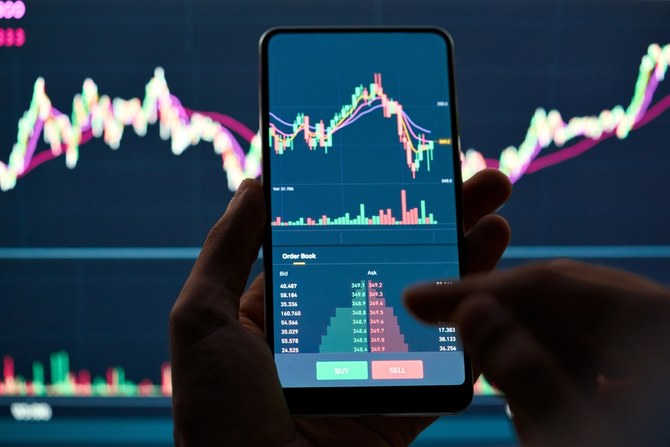
RIYADH: Saudi Arabia’s Tadawul All Share Index rose on Sunday, gaining 20.78 points, or 0.17 percent, to close at 12,373.11.
The total trading turnover of the benchmark index was SR5.26 billion ($1.4 billion) as 92 of the stocks advanced, while 129 retreated.
Similarly, the Kingdom’s parallel market Nomu also rose 332.34 points, or 1.26 percent, to close at 26,790.15. This comes as 27 of the stocks advanced, while as many as 31 retreated.
Meanwhile, the MSCI Tadawul Index jumped 4.56 points, or 0.29 percent, to close at 1,551.76.
The best-performing stock of the day was Zahrat Al Waha for Trading Co. whose share price surged 9.97 percent to SR47.45.
Other top performers include Raydan Food Co. as well as Saudi Cable Co.
The worst performer was Gulf Insurance Group whose share price dropped by 9.94 percent to SR34.90.
Other subdued performers included Al-Baha Investment and Development Co. as well as Salama Cooperative Insurance Co.
On the announcements front, Saudi Tadawul Group Holding Co. has announced its interim financial results for the period ending on March 31.
According to a Tadawul statement, the company’s net profit hit SR201.5 million in the first quarter of 2024, reflecting a 121 percent surge when compared to a similar quarter last year.
The increase was mainly driven by a rise in operating revenues, operating expenditures, and earnings per share as well as a climb in gross profit and operational profit.
Moreover, the National Agricultural Development Co. also announced its interim financial results for the first three months of 2024.
A bourse filing revealed that the firm’s net profit reached SR101.3 million by the period ending on March 31, up 168 percent in comparison to the corresponding period in 2023.
The increase in net profits is primarily attributed to a rise in revenue, a decrease in the cost of sales, and a reduction in finance costs, among other factors.
Furthermore, Gulf Insurance Group also announced its interim financial results for the first quarter of the year.
According to a Tadawul statement, the company reported a net loss of SR20.2 million, contrasting with a net profit of SR56.6 million in the same period of the previous year.
This loss is primarily attributed to a decrease in insurance revenue combined with adverse movement in reinsurance contracts.
Additionally, Saudi Aramco Base Oil Co., also known as Luberef, announced its interim financial results for the period ending on March 31.
A bourse filing revealed that the firm’s net profit stood at SR239 million at the end of the first quarter of 2024, reflecting a 46.3 percent drop when compared to the same quarter a year ago.
The decline in net profit for the current quarter compared to the same quarter of the previous year is attributed to a decrease in base oil crack margins.
Meanwhile, Saudi Cable Co. disclosed its annual financial results for the period ending on Dec. 31.
According to a Tadawul statement, the company reported a net profit of SR36.5 million in the first three months of 2024, a significant improvement from the net loss of SR584.9 million recorded in the corresponding period a year ago.



